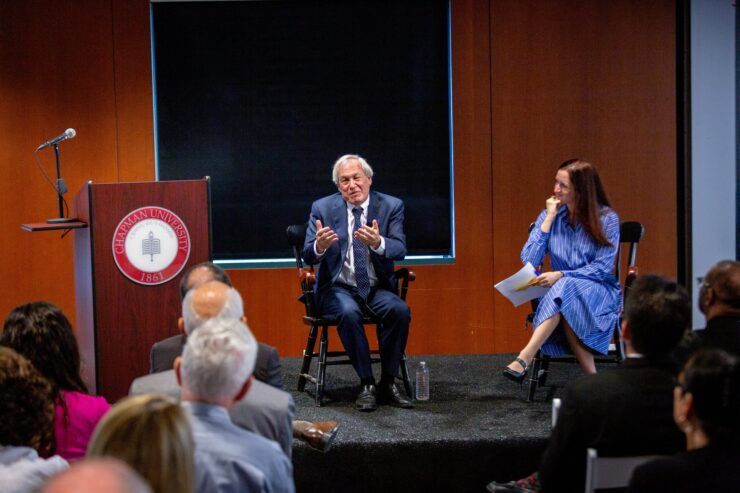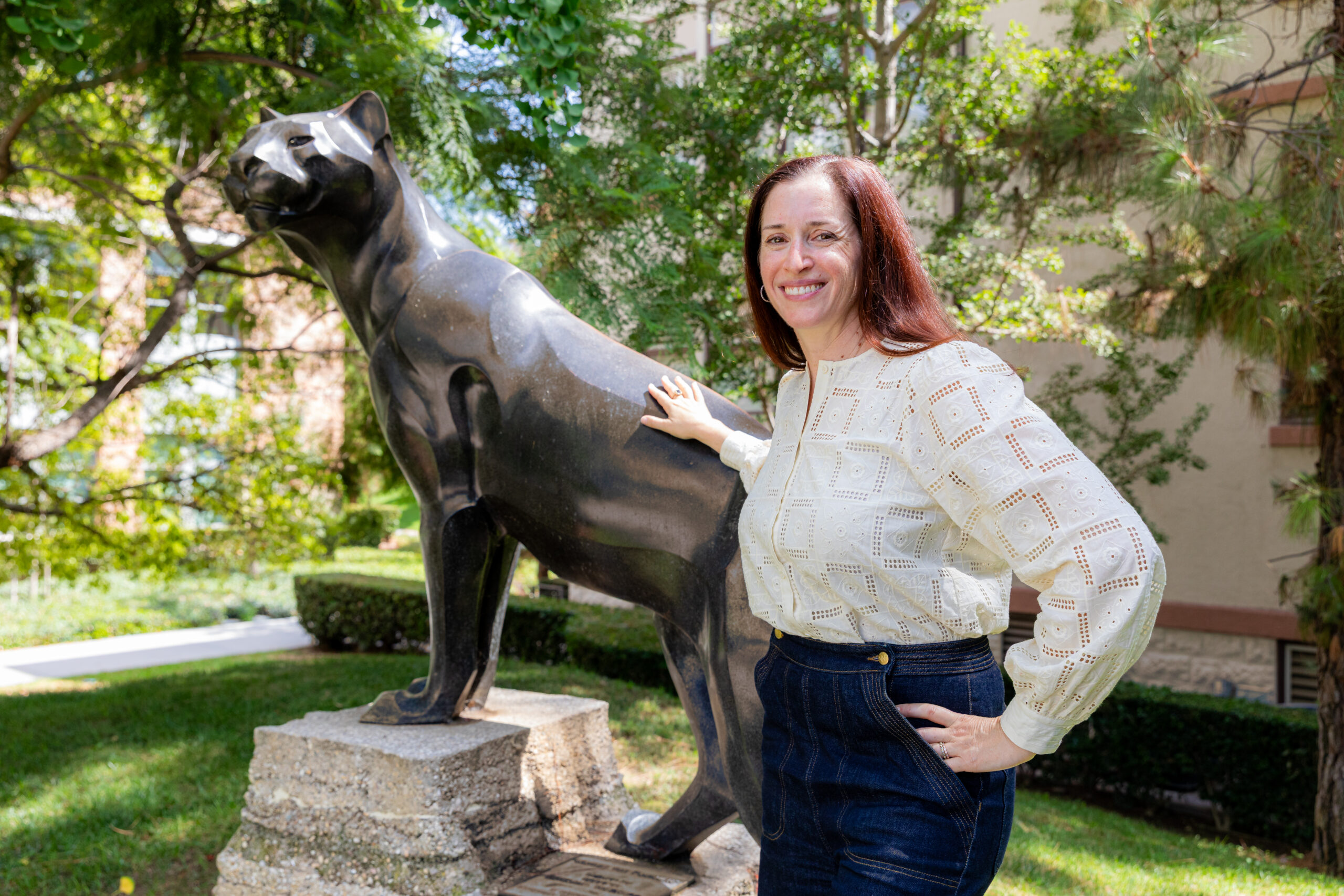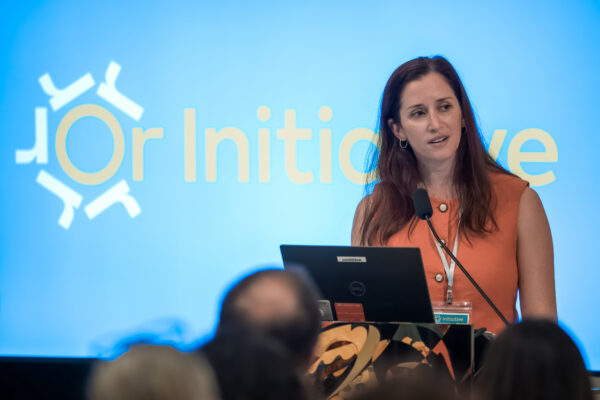As the U.S. grapples with deepening political divides, Chapman University is emerging as a leader in the pursuit of free speech and civil discourse.
Chapman’s new president, Matt Parlow, aims to establish the university as a model for welcoming students from all backgrounds, creating an environment where diverse perspectives can be shared and challenging conversations can occur respectfully and thoughtfully.
As part of those efforts, the weeklong inauguration of Parlow included a thoughtful discussion with renowned legal scholar Erwin Chemerinsky and Chapman Professor Vikki Katz about free speech and civil discourse on university campuses. The event was part of a series of gatherings commemorating Parlow’s appointment as Chapman’s 14th president, held from Monday, Oct. 6, to Tuesday, Oct. 14.
In front of a packed room, Chemerinsky, dean of the UC Berkeley School of Law, and Katz explored pressing issues such as hate speech, the influence of social media on civil discourse and the role of universities in promoting free expression and diversity of thought.
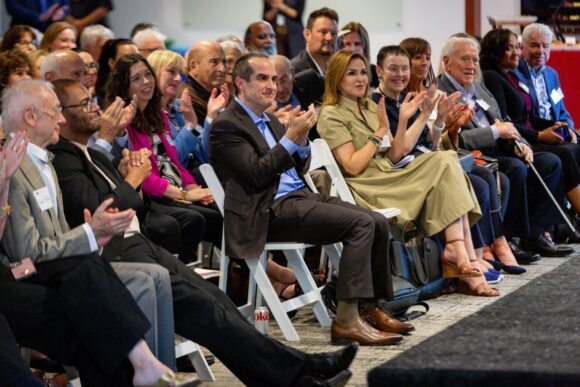
Universities Lead the Way
“If there’s going to be a place where there’s freedom of speech and the free exchange of ideas, it has to be on a college campus,” Chemerinsky said. “You cannot possibly have a better president to lead you on this than Matt Parlow.”
During the conversation, Chemerinsky, a champion of free speech, explained that hate speech, while unpleasant, is not unconstitutional under the First Amendment. He noted that many universities have tried, and failed, to ban hate speech. However, he said universities can and should impose reasonable restrictions on speech, emphasizing that disruptions to events are not acceptable, drawing on his own experiences with antisemitism. He underscored that universities must serve as a model for the rest of society.
“Universities should provide opportunities for students to hear all sides on campus,” said Chemerinsky, noting that U.S. universities must protect academic freedom, which depends on giving faculty the latitude to choose how to teach their material.
Katz agreed, adding that hiring faculty with a variety of viewpoints helps foster diversity of thought and encourages students to appreciate multiple perspectives.
With many students experiencing discourse primarily through social media, Chemerinsky noted that while digital platforms are not the root cause of political division, they have amplified the “coarsity of rhetoric”—the uncivil tone that increasingly defines public dialogue.
“Social media doesn’t promote reasoned, respectful debate,” he said.
Katz echoed that sentiment.
“It’s an accelerating force but not a root cause,” she said.
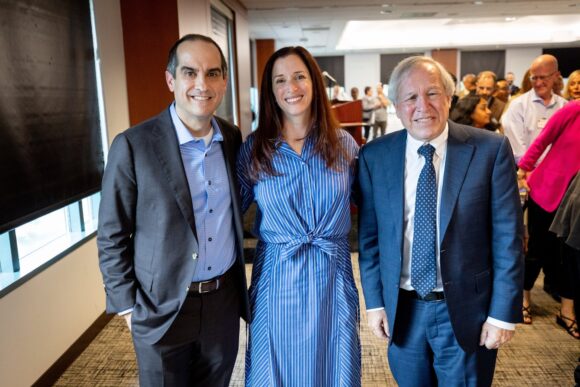
The Or Initiative
The hourlong event also marked Katz’s first public appearance since being named the Fletcher Jones Foundation Endowed Chair in Free Speech. In this role, Katz is central to Chapman’s mission to become a national model for civil discourse.
She leads the Or Initiative, which seeks to equip young people with tools to engage thoughtfully on contentious issues using evidence-based, innovative approaches. The initiative is supported by a $1.85 million gift from the Samueli Foundation.
The Or Initiative’s first programs, designed for middle and high school students, will focus on building strong digital research skills and fostering civil discourse rooted in empathy and respect. Over time, the initiative aims to serve as a national model for transforming dialogue across all age groups.
With Parlow at the helm, and leaders like Katz helping to architect a framework for meaningful dialogue, Chapman is poised to play a significant role in shaping this urgent national conversation.
“It’s a pleasure to be here, and it’s so wonderful to congratulate my friend Matt Parlow for his role as president at Chapman,” Chemerinsky said.
